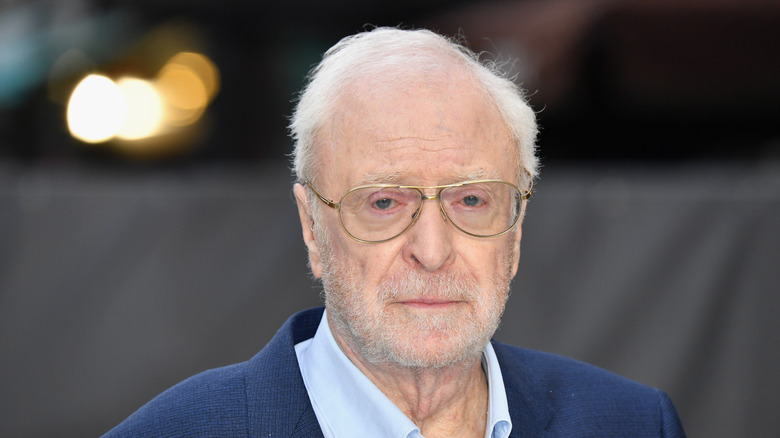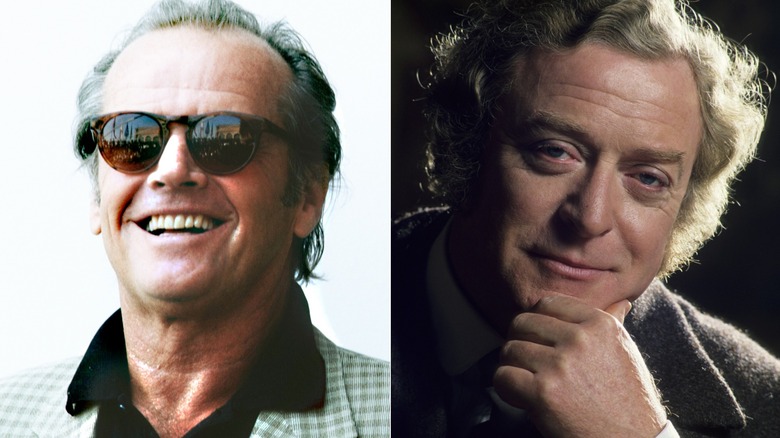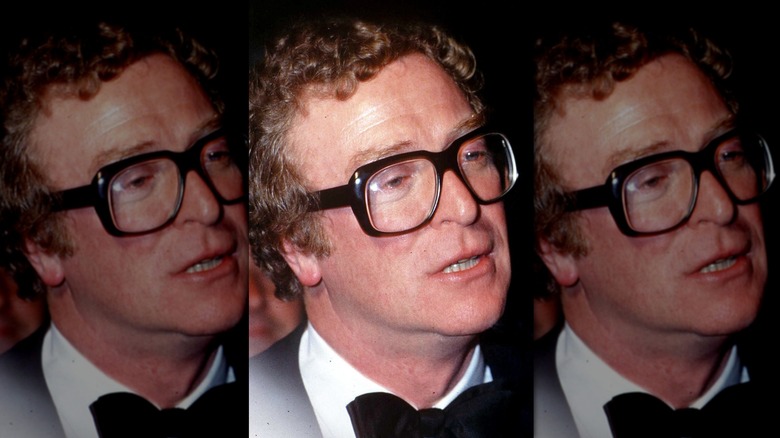How Jack Nicholson Saved Michael Caine's Career
For modern American audiences, Michael Caine is perhaps most famous for the work of his autumn years: Sardonic appearances in comedies, a long association with Christopher Nolan, and being the most serious co-star the Muppets have ever had. But in his native Britain, Caine was hailed as a major star and fashion icon in the 1960s. At the height of the "spymania" craze launched by James Bond, Caine portrayed the grimmer, lower-key Harry Palmer in "The Ipcress File." Today, his character is still celebrated as a shadowy counterpoint to 007 — the dark side of cinematic espionage.
The Harry Palmer sequels, however, did not inspire the same enthusiasm among fans as the first film, and the character wasn't able to sustain a series of the same length and quality as his more glamorous fellow spy. The fourth and fifth Palmer films, back-to-back made-for-TV efforts that didn't come about until the 1990s, were disastrous productions plagued by unsanitary conditions and the influence of organized crime. The shoots also came at a time when Caine's position as a leading man was crumbling — offers were becoming scarce, and the parts he was offered forced him to reckon with his advancing age.
Between diminishing opportunities and the nightmare of shooting the last two Palmer films, Caine began seriously contemplating retiring. He had a side business as a restauranteur to sustain him, and in retirement, he could write his autobiography. With all that in mind, Caine settled in Miami, refused any scripts, and found a new joy in life as a lazy retiree. That is, until Jack Nicholson came to call.
Jack Nicholson put Michael Caine's acting career into a new perspective
Michael Caine was a star in his native Britain in his heyday, but Jack Nicholson reigned long as an international superstar. Before his own retirement, he set the record for most acting Oscar nominations by any male performer and was as noted for his iconic public persona — the shades, the grin, the courtside seats at home Lakers games — as he was for his celebrated screen roles. Middle-aged by the 1990s just as Caine was, Nicholson was still landing starring roles in high-profile vehicles like "Hoffa" and "As Good as It Gets."
But Nicholson was also taking on meaty supporting parts by that time and drawing raves for them. His role in "A Few Good Men" got him one of his Oscar nominations, and Nicholson himself delighted in playing the Joker in "Batman." It was the joys of such character work that he wanted to talk to Caine about when he visited him in Miami. "[He] persuaded me that the reinvention did not have to be so extreme [as retiring]," Caine wrote in his memoir "Blowing the Bloody Doors Off: And Other Lessons in Life." "Why not simply reinvent myself as a movie actor, as opposed to a movie star? A character actor, rather than a leading actor?"
Caine explained the difference — besides the relative size of the part — as control versus challenge. Stars can have parts and scripts tailored to suit them, but character actors must adapt to fit what's written. Or, put another way: "I may no longer get the girl, but I'm still getting the parts."
The film that saved Caine's career flopped
Jack Nicholson didn't bring up a transition to character acting to Michael Caine as a matter of casual conversation. He'd gotten a script while he was in Miami for a film called "Blood and Wine." Nicholson was set to play the lead in the noir thriller, but he felt Caine was ideally suited for one of the supporting parts. He wore down Caine's thoughts of retirement and pulled him into the movie. And it didn't take long for Caine to accept he'd made the right call. "However happy I kidded myself I was," he wrote in his memoir, "I was never going to be happier than when I was acting."
Filming "Blood and Wine" was a lovely experience for Caine as well as a revelatory one. He enjoyed working with Nicholson, saying years later at a Hollywood Reporter roundtable that "as a friend [Jack] is fabulous, and to work with is one of the greatest actors I've ever worked with." But "Blood and Wine" received mixed reviews, and with a $1.1 million gross against a $26 million budget, it represented a box office flop. It was also the only time Nicholson and Caine appeared in a film together, despite their friendship.
But if the film wasn't a critical or commercial succcess, it was a major turning point for Caine's career. His decision not to retire in the 1990s sustained his acting work long enough to connect with Christopher Nolan and his later fame. Caine would ultimately stay active over a decade longer than Nicholson, who beat his friend to (unofficial) retirement after 2010.


